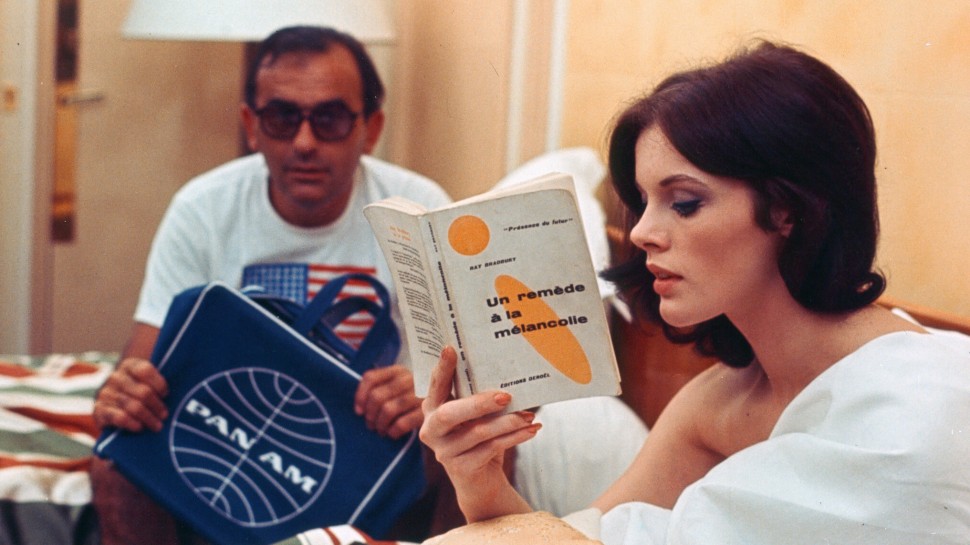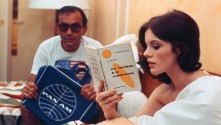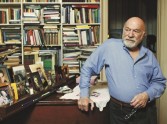
Two or Three Things I Know About Her
(2 ou 3 choses que je sais d’elle)
Screening on Film
With Marina Vlady, Anny Duperey, Roger Montsoret.
France, 1967, 35mm, color, 87 min.
French with English subtitles.
Print source: Rialto Pictures
Godard’s film Two or Three Things I Know About Her, from 1967, takes place in a cityscape of demonic juxtaposition, with equal parts of decay, junk, and construction amid a growing forest of babbling one- or two-word signs, done with big letters in primary colors, made as if for giant children who will learn nothing beyond them. It is the sort of scene [...] which Godard seems to despise and admire America for bringing into the world. The film contains Godard’s early figure of the housewife/prostitute, symbolizing late capitalism, surrounded in her modern kitchen by every familiarly garish product purchasable from a supermarket, underscored by a sound track sometimes unyielding with its sounds of cans being opened and of pots being carelessly slammed on a stovetop and, outside of the windows, of trucks and cars spelling out our dependence upon them. But suddenly, from nowhere, the opening phrase, or quasi fragment, of Beethoven’s last String Quartet is heard. [...] The ache for the responding phrase is so strong as for a moment to convince us that we are apt for prayer. Grant that the Godard film is a masterpiece of postmodernist filmmaking, at any rate one that positions itself against a tradition of complacent, derivative modernism and humanism and liberalism and the rest, as strongly as any postmodern object. How do we understand the gesture of its quoting the Beethoven? [...] Is it to say that its opening fragment is to be regarded as complete, in other words, that there is no established way of going on from it, to an answering fragment? Does this mean that there is hope for us in learning how to go on, or that there is not? [...] Is Godard’s quotation of Beethoven taunting us with a memory of an experience we can no longer have, or trust? Or is he proposing that we learn from it, if such an experience is any longer open to us, that we shall have to find it in unheard-of forms, within landscapes of ideals that seem merely blasted? – Stanley Cavell, “Crossing Paths,” (2002) in Cavell on Film, ed. William Rothman















